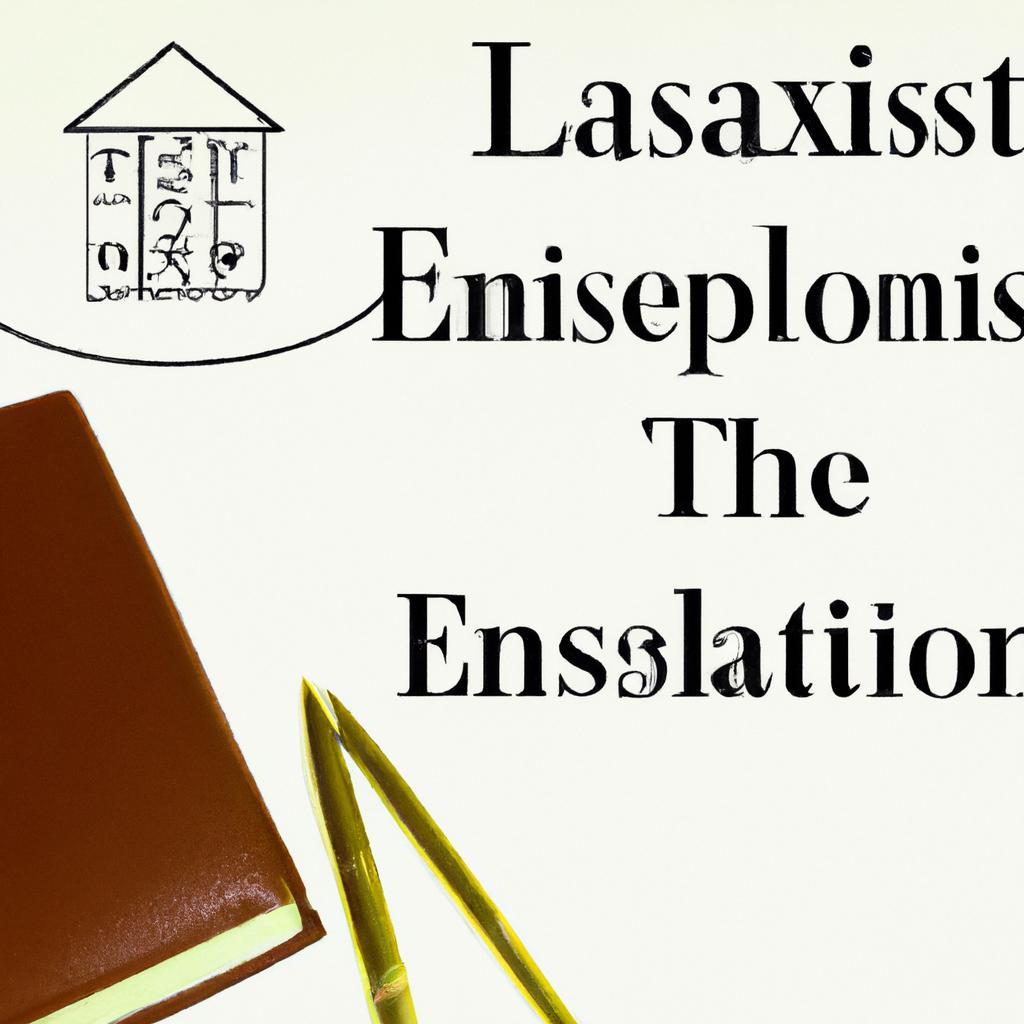As seasoned legal practitioners in the realm of estate planning and probate, the question of compensation for estate administrators is one that frequently arises in our practice. Many individuals appointed to carry out the tasks of administering an estate often wonder about the compensation they are entitled to receive for their efforts. In this article, we delve into the intricacies of how much an estate administrator can expect to be paid, shedding light on the factors that influence remuneration in this crucial role. Join us as we navigate the complex terrain of executor compensation with a keen eye for detail and a wealth of legal expertise.
Compensation for Estate Administrators: Understanding the Basics
An estate administrator’s compensation is an essential aspect of their role in managing a deceased individual’s estate. While the specifics of how much an estate administrator gets paid can vary depending on the circumstances, there are some fundamental basics to understand about compensation in this role. First and foremost, it’s crucial to note that estate administrators are entitled to fair compensation for their time and effort in handling the deceased person’s affairs. This compensation is typically determined by state law or the provisions of the deceased person’s Will. It is essential for estate administrators to be aware of their rights and responsibilities when it comes to being compensated for their work.
In general, estate administrators are typically compensated based on a percentage of the total value of the estate. This percentage can vary by state and can range from 1-5% of the estate’s total value. Additionally, estate administrators may also be entitled to reimbursement for out-of-pocket expenses incurred while managing the estate, such as court fees, postage, and travel expenses. It’s important for estate administrators to keep detailed records of all expenses related to the estate to ensure they are properly compensated for their work. Ultimately, understanding the basics of compensation for estate administrators is essential for navigating the complexities of managing a deceased person’s estate effectively.
Factors Affecting the Payment of Estate Administrators
When it comes to determining the payment of estate administrators, there are several factors to consider. The compensation for estate administrators is often set by state law, but can also be influenced by the complexity of the estate, the amount of assets involved, and the level of expertise required. In general, estate administrators can expect to be paid a percentage of the estate’s total value as their fee.
Other factors that can affect the payment of estate administrators include the relationship between the administrator and the deceased, any disputes or conflicts among beneficiaries, the location of the estate, and the amount of time and effort required to properly administer the estate. It is important for estate administrators to carefully consider these factors when determining their fee, as overcharging or undercharging can lead to legal issues and disputes among beneficiaries.

Determining a Fair and Reasonable Fee for Estate Administrators
When , it’s crucial to consider the complexity of the estate, the responsibilities involved, and the time commitment required. Estate administrators are typically compensated through a percentage of the estate’s total value. This percentage can vary depending on various factors such as the size of the estate, the specific duties required, and the jurisdiction in which the estate is being administered. It is essential to strike a balance between compensating the administrator fairly for their efforts and ensuring that the fees remain reasonable and proportionate to the work performed.
Additionally, it is crucial to outline the scope of the administrator’s duties and responsibilities in a detailed agreement to prevent any misunderstandings or disputes down the road. By clearly defining the administrator’s role, expectations, and compensation structure, both the estate administrator and the estate beneficiaries can ensure a smooth and transparent administration process. Furthermore, consulting with an experienced estate planning attorney can provide valuable guidance and insight into establishing a fair and equitable fee structure that complies with state laws and regulations.

Tips for Negotiating Compensation as an Estate Administrator
As an estate administrator, negotiating compensation can be a challenging task that <a href="https://estatelawnewyork.com/are-family-trusts-a-good-idea/" title="Are family trusts a good idea?">requires careful consideration</a> and planning. Here are some tips to help you navigate the process effectively:</p><br />
<ul><br />
<li><strong>Educate Yourself:</strong> Before entering into negotiations, take the time to research the typical compensation rates for estate administrators in your area. This will give you a better understanding of what is fair and reasonable.</li><br />
<li><strong>Highlight Your Experience:</strong> During negotiations, be sure to emphasize your experience and qualifications as an estate administrator. This can justify a higher compensation rate and demonstrate your value to the estate.</li><br />
</ul><br /> When negotiating compensation as an estate administrator, it is important to maintain professionalism and be prepared for discussions to potentially take time. Remember to consider the complexity of the estate, the amount of work involved, and the potential benefits you bring to the table. By approaching negotiations strategically and confidently, you can ensure that you are fairly compensated for your valuable services.</p><br />Q&A
Q: How much does an estate administrator get paid?
A: The compensation for an estate administrator can vary depending on the size of the estate and the complexity of the job. Some administrators may charge a flat fee, while others may charge an hourly rate.
Q: What factors determine the payment of an estate administrator?
A: The responsibilities of the administrator, the amount of time spent on the job, and any special expertise required can all impact the payment of an estate administrator.
Q: Are there any laws that dictate how much an estate administrator can get paid?
A: Each state has its own laws regarding the payment of estate administrators. Some states have guidelines or limits on the amount that can be charged, while others allow for more flexibility.
Q: What are some common payment arrangements for estate administrators?
A: Flat fees, hourly rates, and a percentage of the estate’s value are all common payment arrangements for estate administrators. It is important to discuss payment terms upfront before hiring an administrator.
Q: Are there any additional costs associated with hiring an estate administrator?
A: In addition to the administrator’s fee, there may be other costs such as court filing fees, appraiser fees, and legal fees. It is important to factor in these additional costs when budgeting for estate administration.
The Conclusion
In conclusion, the compensation for estate administrators can vary widely depending on various factors such as the size of the estate, the complexity of the assets, and the location of the administration. It is important for both administrators and beneficiaries to understand the potential costs involved in order to ensure a fair and transparent process. Ultimately, the role of an estate administrator is crucial in ensuring the smooth distribution of assets and the fulfillment of the deceased’s wishes. If you are considering taking on this responsibility, it’s important to carefully consider the potential compensation and ensure that it aligns with the work involved. Thank you for reading.
 As difficult as it may be to consider, planning for the distribution of assets after our passing is a crucial part of responsible financial management. One aspect of this process involves choosing an estate administrator. This person is responsible for handling the decedent’s assets, paying off debts, and distributing remaining funds to beneficiaries. But a common question many people have is, “How much does an estate administrator get paid?” In this article, we will explore the answer to this question and provide valuable information and tips for those seeking to understand this important role in the estate planning process.
As difficult as it may be to consider, planning for the distribution of assets after our passing is a crucial part of responsible financial management. One aspect of this process involves choosing an estate administrator. This person is responsible for handling the decedent’s assets, paying off debts, and distributing remaining funds to beneficiaries. But a common question many people have is, “How much does an estate administrator get paid?” In this article, we will explore the answer to this question and provide valuable information and tips for those seeking to understand this important role in the estate planning process.
Before we dive into the details, let’s quickly review what an estate administrator does. Essentially, an estate administrator is appointed by the probate court to manage the estate of a deceased individual. This could be a family member or a trusted friend, but in cases where no one is available or willing, the court can appoint a professional administrator. The duties of an estate administrator include collecting all assets, paying off any debts or taxes, and distributing the remaining assets to the designated beneficiaries according to the deceased’s will or state laws.
Now, back to the question at hand – how much does an estate administrator get paid? The simple answer is that the amount varies, and it largely depends on the state in which the estate is being administered. However, there are some general guidelines and factors that can give us a better understanding of the average compensation for this role.
According to a survey conducted by the American Academy of Estate Planning Attorneys, the average compensation for an estate administrator is 3-5% of the total estate value. This means that if the estate is worth $500,000, the administrator’s fee would be between $15,000-$25,000. However, this percentage may vary depending on the specific state laws and the complexity of the estate.
Now, let’s take a look at some of the key factors that can influence an estate administrator’s compensation:
– Estate size: As mentioned earlier, the larger the estate, the higher the compensation for the administrator. This is because managing a larger estate requires more time, effort, and expertise. The administrator’s fee can also be affected by the type of assets in the estate, as some assets may require more work to transfer or liquidate.
– Time spent: Along with the estate’s size, the time spent by the estate administrator in managing the estate can also play a role in determining their compensation. If the estate is complex and involves multiple assets or debts, it will require more time and effort from the administrator, thus justifying a higher fee.
– State laws: As with many legal matters, the state laws where the estate is located can greatly impact the administrator’s compensation. Some states may have a specific formula for determining the administrator’s fee while others may allow the individual or family to negotiate the fee with the administrator.
– Professional or personal administrator: As mentioned earlier, the court can appoint a professional estate administrator if there are no willing or capable individuals available. In this case, the fee may be higher, as the professional administrator has the education and experience to manage the estate effectively. On the other hand, if a family member or friend is appointed as the administrator, they may not receive any compensation or may request a lower fee.
– Additional expenses: An estate administrator may also be entitled to reimbursement for any out-of-pocket expenses incurred while managing the estate. This could include travel expenses, court fees, legal fees, or any other necessary costs. While these are not considered a part of the administrator’s compensation, they are still an important factor to consider when determining the overall cost of managing an estate.
Having a better understanding of the average compensation of an estate administrator can help individuals or families better plan for the administration of an estate. It can also help them make informed decisions when it comes to choosing an administrator that is both capable and reasonable.
Aside from the financial aspect, there are other benefits to having an estate administrator. One of the most significant benefits is that the administrator is responsible for managing and distributing the estate according to the deceased’s wishes. This can provide peace of mind to the deceased, knowing that their affairs will be handled by someone they trust.
Additionally, having a qualified and experienced estate administrator can ensure that the estate is properly managed and any legal issues are resolved efficiently. This can save time, money, and avoid any potential conflicts among beneficiaries.
In conclusion, the compensation for an estate administrator can vary depending on several factors, including the estate’s size, time spent, state laws, and type of administrator. While 3-5% of the total estate value is considered the average, it is still essential to discuss and negotiate with potential administrators to ensure a fair and reasonable fee. Ultimately, having a capable and trustworthy estate administrator can provide peace of mind and ensure that the deceased’s final wishes are carried out effectively.





